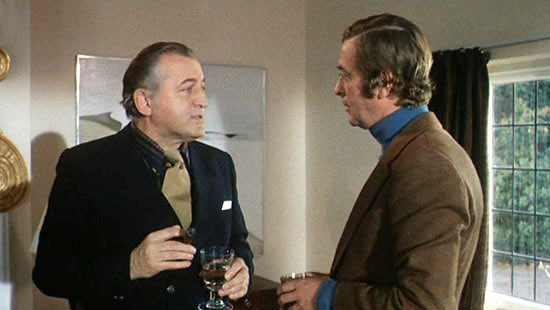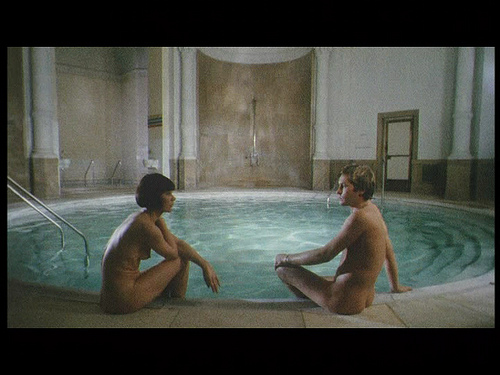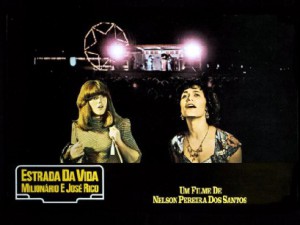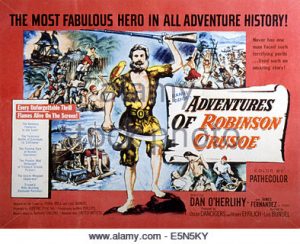From Monthly Film Bulletin, October 1975. — J.R.

Romantic Englishwoman, The
Great Britain/France, 1975 Director: Joseph Losey

Elizabeth Fielding arrives in Baden Baden on holiday; on the
same train is Thomas Hursa, carrying a supply of drugs, which he
hides on the roof of the luxury hotel where Elizabeth is staying.
Her husband Lewis, a successful novelist now at work on a
screeinplay about a discontented woman who leaves her
husband, phones her at midnight. While Elizabeth converses
with Thomas in a lift, Lewis imagines her making love with
a man in a similar situation (an image which he uses in his
screenplay); he rings her again at 12:30 and she answers
belatedly, saying that she will be home in Weybridge the
next day. Thomas’ drug supply is destroyed in the rain
and he flees when he discovers that Swan, a drug contact, is
looking for him. When Elizabeth returns at night, she and Lewis
start to make love on their front lawn, but are interrupted by a
neighbor. After expressing his suspicion that his wife was
unfaithful in Baden Baden, Lewis receives a letter from Thomas
describing himself as a poet and admirer of Lewis’ work and
mentioning that he met Elizabeth in Baden Baden. Read more
From Sight and Sound (Spring 1985). — J.R.



With its continuing devotion to the independent and marginal, the Rotterdam Film Festival offered fewer peaks this year than last, but more than enough rolling happy valleys in between. Full-bodied retrospectives given to Jonathan Demme and Nelson Pereira dos Santos wove their way almost contrapuntally through the nine days of movies -– providing the selection with a sturdy populist backbone. Guided by the Langlois-like eclecticism and passion of director Hubert Bals, the festival virtually rebaptises every film that it shows under the banner of a relaxed, low-budget freedom that the Spielbergs and Coppolas can only dream about.
Pereira dos Santos and Demme are cases in point. From the sixteenth century (How Tasty Was My Little Frenchman) to the post-nuclear future (Who Is Beta?) to the impoverished present (Rio, 40 Degrees; Vidas Secas), dos Santos’ films blend anthropological wit with neo-realist compassion. The sociological wit and Renoir-like warmth of Demme exude a comparable bias towards the downtrodden. Oddly enough, the two sensibilities nearly come together in the very different pop/folk musicals Estrada da Vida (1980) and Stop Making Sense (1984). Respectively a docu-drama about wall painters who make it big as country singers in Sao Paulo, and an on-stage concert performance by the Talking Heads, both films make striking use of flat colour backdrops to objectify and enhance the cultural clout of the performers. Read more
From the Chicago Reader (February 1, 1988). — J.R.

One of the most unjustly neglected of Luis Buñuel’s films, this 1952 feature also happens to be one of the two he directed in English (the other is the equally neglected The Young One). Buñuel shows an overall fidelity to the plot of Daniel Defoe’s classic novel while steering the thematic concerns in a somewhat different direction, and even manages to incorporate a few touches of surrealism. Dan O’Herlihy is superb in the title role (he was nominated for an Oscar when this film was belatedly released in the U.S.), while Jaime Fernandez makes a more than adequate Friday. The color photography is also distinctive. 90 min.
 Read more
Read more
R.I.P. Nicolas Roeg, 1928-2018. From The Movie no. 85, 1981.— J.R.

It is surely more than just a coincidence that director Nicolas Roeg has used leading pop stars and rock personalities in three of his five features to date. The sheer satanic presences of Mick Jagger in Performance (1970), of David Bowie in The Man Who Fell To Earth (1976) and, to a lesser extent, Art Garfunkel in Bad Timing (1980), all have something slightly magical about them — as if they held the implicit promise that unusual and outsized events were going to take place around and, in large measure, because of them. Boldly delineated in each case like the demonic princes of dark impulses, they are offered as guides and portals into the decadent fantasies which these films often traffic in. As Roeg told critic Harlan Kennedy in an interview:
What I find interesting about singers is that they all have the qualities of performers but they’re untouched in terms of acting. They’re not from the New York school of this or that: they’re not from the London theatre….So many actors have lost their intent, their beginnings. They’re not this travelling group of players that one evening is a king, another evening is a beggar. Read more








